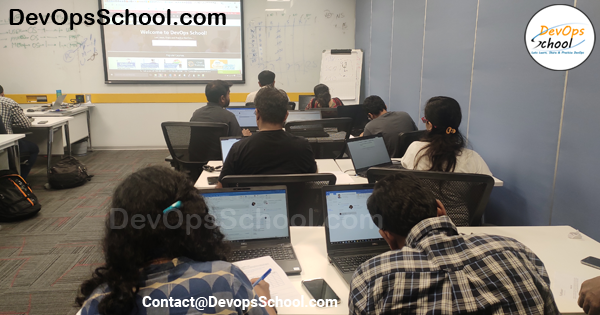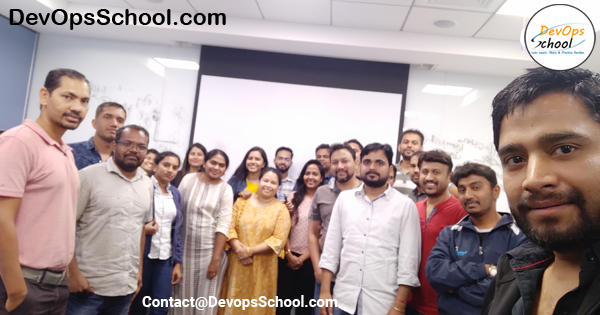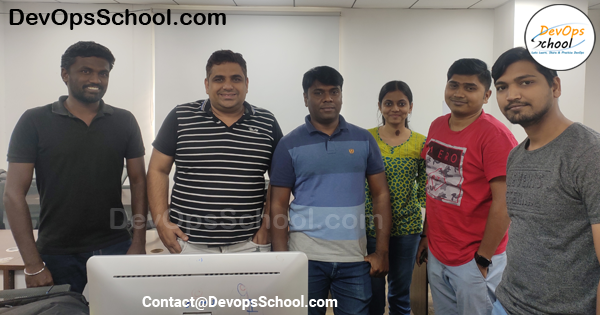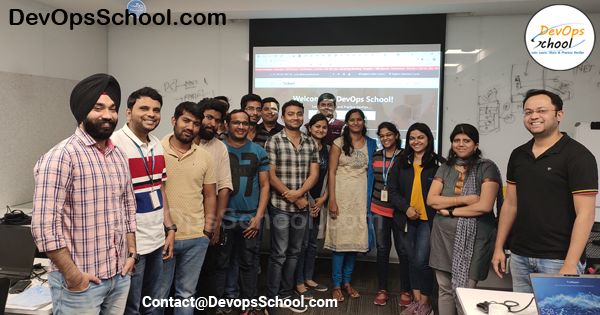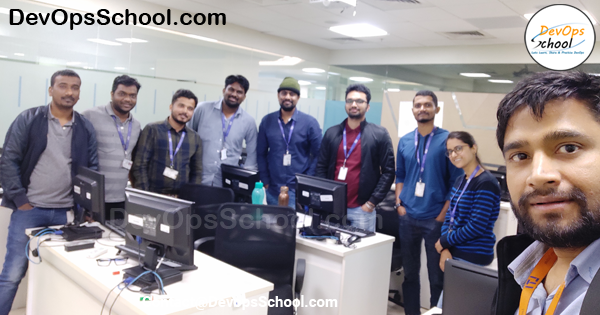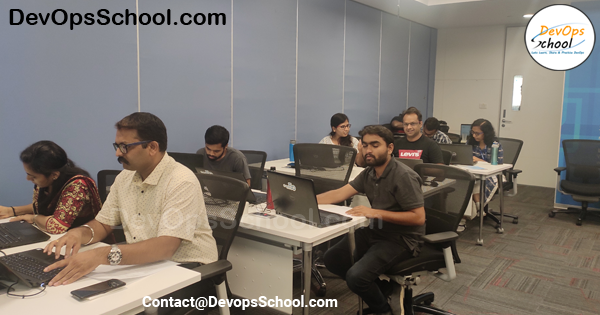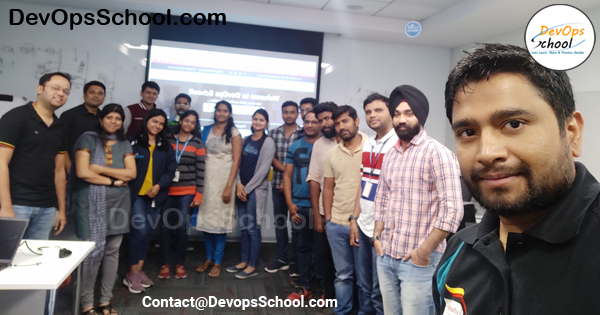1. About This Course and Certification
The MLOps Training and Certification by AI Universe in collaboration with DevOpsSchool.com is a comprehensive course aimed at providing the skills and knowledge needed to manage the entire lifecycle of Machine Learning Operations (MLOps). This course will cover best practices and tools used in developing, deploying, monitoring, and scaling machine learning models in production environments. Upon completion, participants will be equipped to take on real-world MLOps challenges and earn an industry-recognized MLOps certification, validating their expertise in the field.
2. What is MLOps?
MLOps (Machine Learning Operations) is a set of practices that unifies Machine Learning (ML), DevOps, and Data Engineering to automate and streamline the ML model lifecycle, including model development, deployment, monitoring, and governance. It helps bridge the gap between data scientists and operations teams, ensuring that ML models can be continuously integrated, deployed, and monitored in production environments. MLOps tools like Kubeflow, MLflow, TensorFlow Extended (TFX), and Docker are covered in this course to give participants hands-on experience.
3. Why MLOps is Important?
MLOps is essential for:
- Operationalizing ML Models: It enables models to be deployed and maintained in production environments with minimal friction.
- Automation and CI/CD: MLOps provides the automation tools necessary for continuous integration and deployment of ML models, ensuring that models are regularly updated as new data comes in.
- Scalability: It allows for the scalable deployment of models across large infrastructures, ensuring high availability and performance.
- Collaboration: MLOps promotes collaboration between data scientists, DevOps engineers, and software developers to streamline the ML lifecycle.
- Governance and Compliance: Helps track model versions, manage model retraining schedules, and ensure that deployed models comply with data governance standards.
4. Course Features
- Industry-Expert Trainers: Led by Rajesh Kumar, an industry expert with vast experience in DevOps and MLOps practices.
- Hands-On Learning: The course includes hands-on exercises with tools such as MLflow, Kubeflow, Docker, and Kubernetes for model deployment and monitoring.
- Certification Preparation: The course is designed to help participants successfully complete the MLOps certification exam.
- Flexible Learning Modes: Available in both online and in-person formats, with flexible schedules for working professionals.
- Real-World Scenarios: Includes real-world use cases, enabling participants to apply the concepts in real-world situations.
5. Training Objectives
By the end of this training, participants will:
- Understand the end-to-end MLOps lifecycle, including model deployment, monitoring, and retraining.
- Gain practical experience in building MLOps pipelines using popular tools like MLflow, Kubeflow, and TensorFlow Extended (TFX).
- Learn to build and manage CI/CD pipelines for ML models.
- Develop skills in model versioning, tracking, and governance.
- Be able to deploy ML models at scale using cloud platforms such as AWS, Azure, or Google Cloud.
6. Target Audience
This course is intended for:
- Data Scientists who want to take their models from development to production.
- ML Engineers who aim to streamline ML model operations in production environments.
- DevOps Engineers interested in integrating ML workflows into CI/CD pipelines.
- Software Engineers looking to move into the MLOps space and automate machine learning processes.
- IT Operations Managers responsible for managing the infrastructure supporting machine learning models.
Basic knowledge of machine learning and DevOps practices is recommended.
7. Training Methodology
The training will be delivered through:
- Instructor-Led Lectures: Comprehensive lectures on MLOps principles and tools.
- Hands-On Labs: Participants will practice building CI/CD pipelines, deploying models using Kubernetes and Docker, and monitoring models in production.
- Case Studies and Workshops: Practical case studies and scenario-based workshops to solve real-world MLOps challenges.
- Q&A Sessions: Interactive Q&A sessions with the instructor to clear up doubts and ensure deep understanding.
8. Training Materials
Participants will have access to:
- Slide Decks: Detailed presentation materials covering all course topics.
- Lab Guides: Step-by-step instructions for practical lab exercises.
- Video Tutorials: Access to recorded video sessions for review and self-paced learning.
- Supplementary Resources: Additional reading materials, whitepapers, and case studies.
- Mock Exams: Sample questions and mock exams to help participants prepare for the certification exam.
9. Evaluation
Participants will be evaluated using the following methods:
- Pre-Course Assessment: A short quiz to gauge participants’ baseline knowledge of MLOps concepts.
- Post-Module Quizzes: Regular quizzes to reinforce key concepts.
- Hands-On Lab Performance: Evaluated based on the participant’s ability to complete practical lab exercises.
- Mock Certification Exam: A mock exam to help participants prepare for the final certification.
- Course Feedback: Participants will complete a survey to provide feedback on course content and delivery.
10. Continuing Education
After completing the course, participants can further their education by:
- Advanced MLOps Workshops: In-depth workshops focusing on specific tools like Kubeflow, MLflow, and CI/CD pipelines for machine learning.
- Community Engagement: Access to forums and discussions with other MLOps professionals through the AI Universe and DevOpsSchool communities.
- Online Learning Resources: Access to blogs, webinars, and case studies related to MLOps.
- Professional Development: Opportunities to attend conferences and events in the fields of machine learning, cloud, and DevOps.
11. Certifications Program
Participants will be prepared to achieve:
- Certified MLOps Professional: This certification demonstrates proficiency in deploying, managing, and scaling machine learning models using MLOps practices.
- Certified MLOps Engineer: Focused on the practical aspects of building and managing MLOps pipelines for real-world environments.
These certifications are recognized in the industry and validate your ability to operationalize machine learning models in production settings.
12. Level of the Training
The course covers both Fundamental and Advanced levels of MLOps:
- Fundamental: Introduction to MLOps concepts, setting up basic environments, and understanding model deployment practices.
- Intermediate: Implementing CI/CD pipelines for machine learning, automation, and monitoring workflows.
- Advanced: Managing large-scale deployments, distributed training, and model governance.
13. Agenda (Day-Wise for 5 Days)
Day 1: Introduction to MLOps
- Overview of the MLOps Lifecycle and its Importance.
- Introduction to Machine Learning Development and Deployment.
- Setting up Development Environments with Docker and Kubernetes.
- Lab: Building a basic CI/CD pipeline for machine learning models.
Day 2: Model Versioning and Experiment Tracking
- Tools for Versioning Models (MLflow, DVC).
- Model Experiment Tracking and Management.
- Lab: Using MLflow for Experiment Tracking and Model Versioning.
Day 3: Model Deployment and Automation
- Continuous Integration and Deployment for Machine Learning Models.
- Deploying Models in Production using Docker and Kubernetes.
- Lab: Deploying a machine learning model with Kubernetes and setting up a monitoring system.
Day 4: Monitoring and Model Retraining
- Monitoring Machine Learning Models in Production (Prometheus, Grafana).
- Automating Retraining Workflows based on Data Drift and Performance Degradation.
- Lab: Setting up automated monitoring and retraining pipelines.
Day 5: Advanced MLOps and Certification Preparation
- Distributed Training and Deployment Strategies.
- Model Governance and Compliance.
- Final Mock Exam and Review.
- Lab: Solving real-world problems using MLOps best practices.
14. Lab Setup
For hands-on labs, participants will need:
- 8GB RAM or more for virtual machines.
- Cloud Access (AWS, Azure, or GCP) for deploying machine learning models in cloud environments.
- Docker and Kubernetes installed on local machines or virtual environments for model deployment and orchestration.
15. Trainers
The course is led by Rajesh Kumar, a veteran DevOps and MLOps practitioner with over 15 years of experience in automation, cloud computing, and machine learning operations. Rajesh has trained thousands of professionals and is known for his hands-on teaching style. Learn more about him at rajeshkumar.xyz.
Certification
- Certification always plays vital role as it leads you towards a dedicated knowledge and skillsets.
- It provides you the ability to stand out of others.
- It gives you an edge during an interview by impressing the interviewer through your certification.
- DevOpsSchool helps you getting this certificate by making you worth to have it.
- DevOpsSchool gives you a completion certificate after successfully completion your training. it will be as a proof of your ability of knowledge and skills.
- The training will be given by industry recognized expert trainers who will make you an expert professional to hold this certificate.
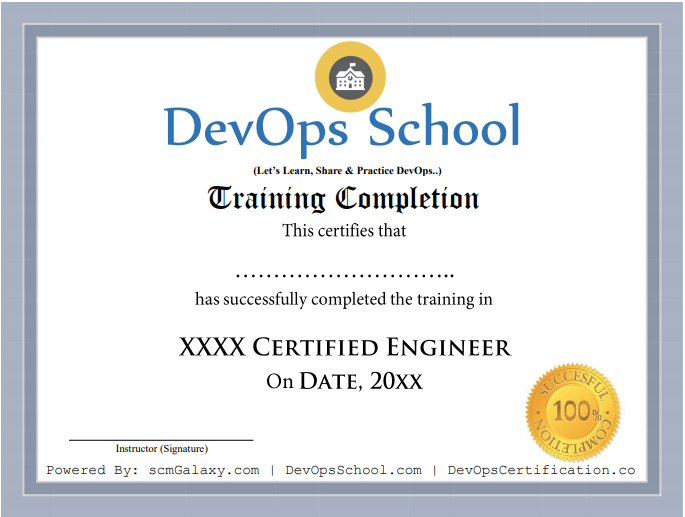
Reviews
By having an excellent journey with 8000+ participants from different countries we have got excellent reviews that helps us stand out of other institutes and being proud. We proudly can say we have helped so many individuals and working professionals to build their career. Here are some of the reviews that we have got from our participants who are happy by being a part of DevOpsSchool.
Videos
Projects
During this training you will get a real-time based project to work on, which will help you to implement your learnings and also it will boost your knowledge and skills. With important tools and platforms you will have real-world experience where we help you to visualize a real development environment, testing environment and production environments.
FAQs
1. Will I get technical support after completion of training?
- Yes, Its free of cost for life time. We will give you can access of our Google drive where you can drop you query and our trainers will respond you back.
2. Why should I learn DataOps course online instead of offline?
- First this is the best option to keep you and your instructor safe in this dangerous pendamic. As well as the environment and benefits what you will get in offline classes same we will provide you in online classes. We will make your experience much better and comfortable than offline classes. That’s why we provide live and instructor-led online classes where you can interact your instructor to clear your doubts.
3. How long will it take to complete the course?
- It will take approx 35 Hrs to fully complete the course.
4. Will I get any placements after the training?
- Well we don’t provide any placements as of now but we can provide you a interview kit to help you out.
5. What are the pre-requisies to learn DataOps?
- Basics of DevOps & Machine learning will help.
6. Can a non technical person learn MLOps?
- Yes, but it will be very hard to learn because here the technical words and platforms will be used that he will be not aware of so in my recommendation you shouldn’t try but if still if you want to then yoou should be very concentrated and honest with you as you have to work hard.
7. Do you have online classes or offline classes?
- As of now online classes but he it is a group of people requirement then we can have discussion about offline classes.
8. Will I get the job after completing this course?
- Yes, you will be fully capable to perform any task given to you by your domain senior or manager. As you will be certified engineer who will have all the required skills and knowledge to perform any task.
9. Which kind of certification will DevOpsSchool provide?
- It’s a completion certificate. It will show that you have successfully completed the training and have the right skills and knowledge to perform the task assigned by your company.
10. How to start a MLOps career?
- You can go for self learning materials like Pdf, Slides, youtube videos but there are one more option that is our DataOps program. It’s our MLOps certifed program that will teach you from basic to make you able to understand and perform a MLOps engineer tasks.
11. Who will be my trainer?
- As we have so many trainers its not possible to tell you quickly, as we have to go through their availability. But we can assure you you will get a best trainer as we have a group of best trainers who are very experienced and skillful trainers. They have 15+ iT working experience.
12. Can I get a demo session?
No we don’t provide any demo class but instead of that we can provide you a class recordings so you can decide.
13. Do we have classroom training?
Yes, Classroom training is available in Bangalore, Hyderabad, Chennai and Delhi location. Apart from these cities classroom session can be possible if the number of participants are 6 plus in that specific city.
14. How will I execute the Practicals?
All the Demo/Hands-on are to be executed by our trainers on DevOpsSchool’s AWS cloud. We will provide you the step-wise guide to set up the LAB which will be used for doing the hands-on exercises, assignments, etc. Participants can practice by setting up the instances in AWS FREE tier account or they can use Virtual Machines (VMs) for practicals.
15. What if I miss any class?
In case if you miss the class then there are two ways to get to know what topics has been covered, i.e 1st- We will share the class recordings, notes etc to you and 2nd – you can attend any other session under 3 months of time period.
Our Gallery
